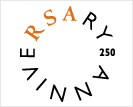The Great Debate in association with the
RSA present
The Great Debate: Genes, Memes, Minds

Click Here
for poster for this event
Click Here
for summary of proceedings
a discussion held on
30 November 2004
The Grainger Suite, Life Conference Centre,
Times Square, Newcastle upon Tyne
Speakers:
Susan Blackmore, author
Consciousness:
An Introduction,
The
Meme Machine
Kenan Malik, author
What Is It to Be Human?,
Man, Beast and Zombie
Raymond Tallis, author
The
Hand: A Philosophical Enquiry into Human Being,
In
Defence of Realism,
The
Enemies of Hope: A Critique of Contemporary Pessimism
Chair: Caspar Hewett
What can evolutionary theory tell us about the human mind?
One of the great triumphs of the late twentieth century was the application
of Darwinian theory to animal behaviour. This led to many attempts to apply
the same methods to human beings and to explain the human mind in evolutionary
terms. Thus we see the rise of the now common phrase ‘the gene for . . .’ in
describing human behaviour. One theory, Evolutionary Psychology, attempts to
explain the mind in terms of evolved predispositions to behave in certain ways.
The theory of the meme rejects the notion that genes are sufficient to explain
cultural evolution - especially in the light of the pace of cultural change. A
meme is a unit of cultural transmission or imitation.
Like the gene, which is a
self-replicating molecule, the meme is a replicator - when a meme is imitated
it has replicated itself. Meme theorists argue that human beings are determined
largely by social factors, not just by genetic code and that there is another
unit of selection at work - the meme. What both these approaches have in common
is the idea that the notion of natural selection, can lead to an understanding
of the human mind.
What are the strengths and weaknesses of these approaches? Why are some
theorists ambivalent about the explanatory value of genes and memes when it
comes to the mind? Is there something fundamental that an evolutionary approach
cannot provide?
Come along, hear the discussion and have your say.
|
Advance booking is necessary
To reserve seats book online
www.theRSA.org/events
Or contact
RSA Lectures, 8 John Adam Street, WC2N 6EZ
Email
lectures@rsa.org.uk
Telephone 020 7451 6868
Fax 020 7839 5805
|
International Centre for Life
Times Square
Newcastle upon Tyne
Top of page
Click Here
to return to Previous Events page
Click Here
for printable version of this page
Click Here
for poster for this event
Click Here
for summary of proceedings

